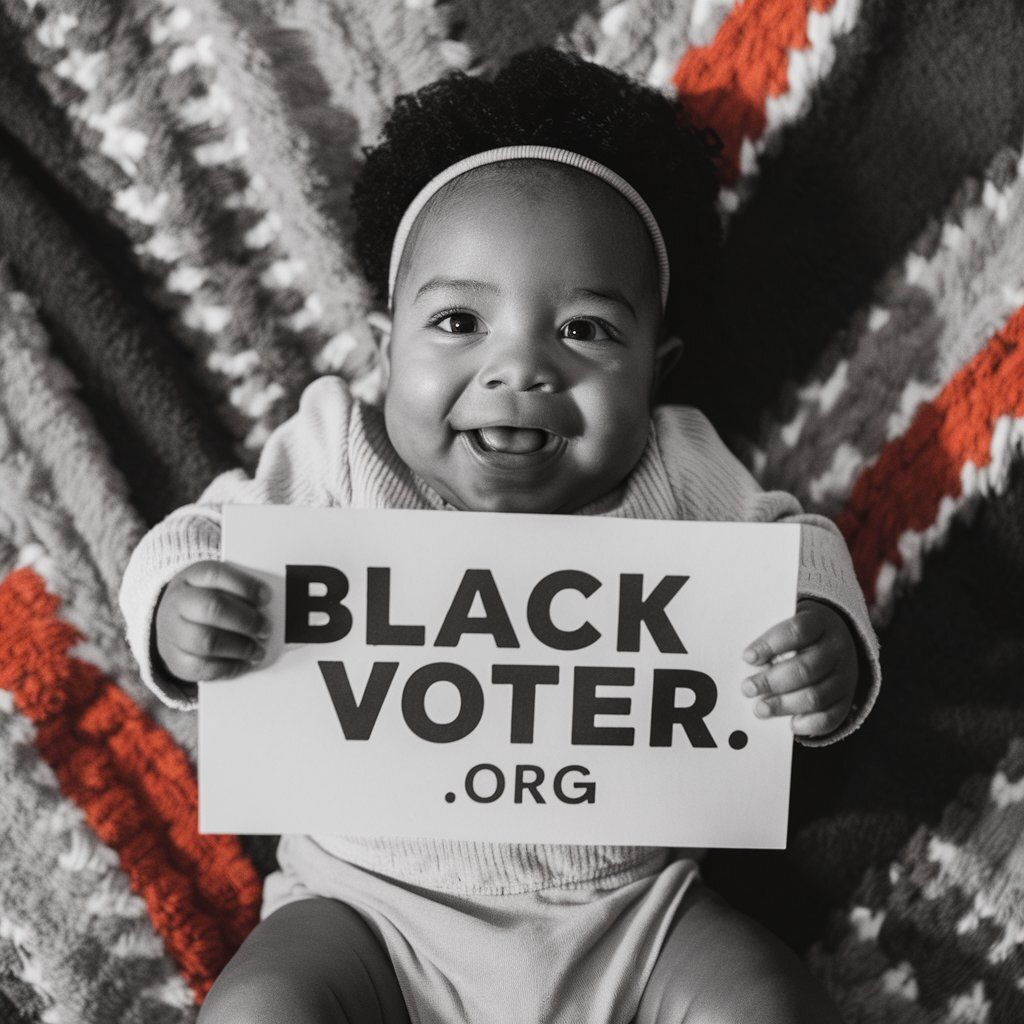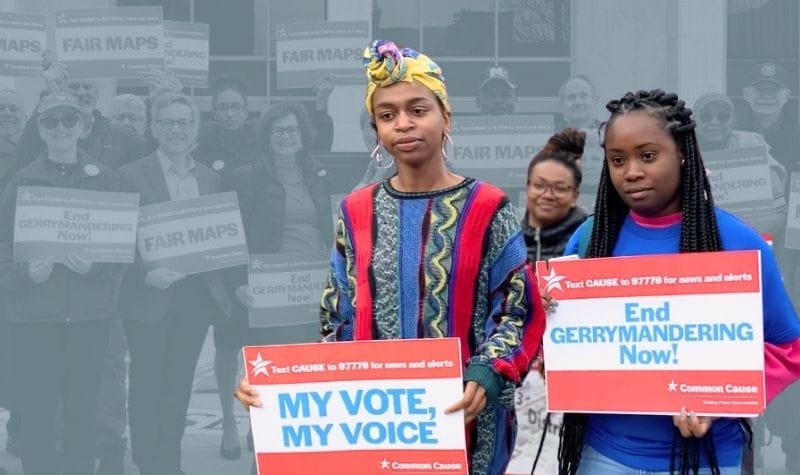- BlackVoter.Org
- Posts
- BlackVoter.Org
BlackVoter.Org


Congratulations to Laylah Amatullah Barrayn, an Arts Politics graduate from the Class of 2020, for her powerful guest essay featured in the New York Times! In "The Wish to Be Seen," Laylah takes readers on a poignant journey back to northern Senegal, reflecting on the profound legacy of Omar ibn Said. Her essay weaves a tapestry of personal narrative, exploring the intricate dance between photography, memory, and the stories that shape our sense of belonging.
Laylah’s introspective piece not only captures the beauty of her homeland but also invites readers to consider how histories are intertwined with our identities. This remarkable work is a testament to the thoughtful exploration of art and cultural heritage that defines her work.
Dive into her essay to experience a vivid exploration of place, memory, and the universal desire to be seen.


Explore the captivating journey of African American spirituals in Mark Gresham's insightful piece, “African American spirituals: preserving the heritage, from the Johnson Brothers to today.” The article delves into the pivotal role of siblings James Weldon Johnson and J.
Rosamond Johnson, who transformed these soulful songs from oral tradition to a celebrated art form in the early 20th century. Their landmark anthologies not only preserved the spirituals but elevated them, providing insights with academic rigor and emotional depth.
Through the Johnsons’ efforts and the influence of artists like Marian Anderson and R. Nathaniel Dett, spirituals became symbols of faith, freedom, and cultural identity in America.
This rich history continues to influence contemporary composers, ensuring the spiritual’s legacy endures. Join Gresham as he celebrates this profound expression of resilience and artistry that resonates deeply in the American musical landscape.

The NAACP is setting the record straight amid swirling rumors around endorsements in Virginia's gubernatorial race. The civil rights organization emphasized that it has not endorsed any candidate, including Abigail Spanberger, the white contender, or her African American opponent.
Rev. Cozy Bailey, head of the NAACP Virginia State Conference, reiterated the organization's focus on policies over politicians, highlighting their commitment to voter rights and community empowerment.
As Election Day approaches on November 4, the NAACP is ramping up grassroots efforts to mobilize voters and combat misinformation that could disenfranchise Black communities. National leaders, including Dominik Whitehead, reinforce that their mission is nonpartisan, zeroing in on civil rights and democratic participation.
With a robust "Get Out the Vote" campaign underway, the NAACP is rallying Virginians to engage in the electoral process and make their voices heard.

A critical Supreme Court case, Louisiana v. Callais, is set to reshape the landscape of voting rights by potentially weakening Section 2 of the Voting Rights Act, which prohibits racial discrimination in voting.
If the court rules against this provision, GOP-controlled states could redraw up to 19 voting districts, favoring Republican representation and significantly diminishing the political power of racial minorities. This ruling could lead to a drastic shift in congressional dynamics ahead of the 2026 elections, allowing for greater Republican control.
Advocates argue that such an outcome threatens democracy by disenfranchising Black and Latino voters, while some Republicans claim that race-conscious redistricting is unconstitutional. As the clock ticks toward midterm elections, observers warn that the court’s decision could unleash a "redistricting free-for-all" with lasting consequences on our electoral landscape.
The stakes couldn't be higher as the nation awaits the court’s decision on this pivotal issue.

In a fierce battle for fair representation, voters and pro-democracy groups in North Carolina are taking a stand against what they see as retaliatory redistricting aimed at punishing Black voters in the historic Black Belt. The North Carolina General Assembly has rapidly approved a controversial new congressional map that critics argue undermines the voting power of Black communities.
Joined by organizations like the ACLU and NAACP, plaintiffs have filed a lawsuit claiming this redraw violates multiple amendments and is a blatant attempt to silence dissent following the 2024 election outcome. Advocates emphasize that this isn't merely redistricting; it's a strategic maneuver to thwart the voices of those who dared to challenge the status quo.
As the fight heats up, community leaders assert that their commitment to making every voice count will not be diminished by political power plays.

In a compelling new episode of “More To The Story,” journalist Jelani Cobb reflects on the profound shifts in American politics, tracing a path from the tragic death of Trayvon Martin to the resurgence of white nationalism and the complex legacy of Barack Obama. As he discusses his latest book, Three or More Is a Riot: Notes on How We Got Here: 2012–2025, Cobb highlights how Martin’s death catalyzed the Black Lives Matter movement, exposing deep-seated racial tensions even during Obama’s presidency.
Cobb argues that while Obama symbolized progress, the backlash against his administration revealed the persistent struggles for racial equality in America. With race and identity looming large over political discourse today, Cobb's reflections serve as a poignant reminder of the ongoing battle for justice and understanding, showcasing how historical reckonings shape contemporary society.
Tune in for a thought-provoking exploration of race, politics, and the lessons we must confront as a nation.

In a controversial move, the Trump administration has opted to erase references to slavery from several national parks, branding this essential part of American history as “corrosive ideology.” This decision has sparked outrage, as it not only disregards the pain and resilience of Black ancestors but threatens to obscure crucial narratives of strength and perseverance that shaped America.
The article highlights figures like Blanche Bruce, the first African American to serve a full term in the U.S.
Senate, who represents the triumph of the human spirit against oppression. As generational change sweeps through politics, young leaders like Rep.
Justin Pearson are stepping up, challenging the status quo and demanding that the stories of marginalized communities are not forgotten. They symbolize a critical shift—ensuring that today's youth have the tools and platforms to continue the fight for equality and justice in a rapidly evolving society.

Thirty years ago, the Million Man March in Washington, D.C.
, reshaped narratives for Black men, becoming a powerful symbol of hope and affirmation. Journalist Mark McCormick recalls the transformative experience, describing how thousands of men came together to redefine their identities beyond societal stereotypes.
Rather than being seen as mere statistics or caricatures, many participants claimed their roles as devoted fathers, community members, and positive influences. The event, crafted by leaders like Louis Farrakhan and supported by Christian organizers, was marked by inspiring speeches from figures such as Maya Angelou and Martin Luther King III.
Although initial crowd estimates were disputed, the resonance of the march led to significant civic engagement, with nearly two million African American men registering to vote afterward. As McCormick reflects on this pivotal moment, he emphasizes that its spirit of resilience and aspiration lingers on, urging a renewed commitment to self-definition and community uplift.